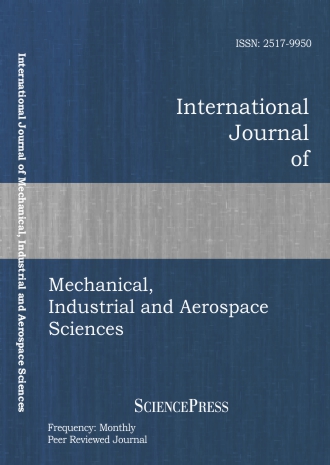
Scholarly
Volume:6, Issue: 5, 2012 Page No: 961 - 968
International Journal of Mechanical, Industrial and Aerospace Sciences
ISSN: 2517-9950
6694 Downloads
Identification and Classification of Plastic Resins using Near Infrared Reflectance Spectroscopy
In this paper, an automated system is presented for identification and separation of plastic resins based on near infrared (NIR) reflectance spectroscopy. For identification and separation among resins, a "Two-Filter" identification method is proposed that is capable to distinguish among polyethylene terephthalate (PET), high density polyethylene (HDPE), polyvinyl chloride (PVC), polypropylene (PP) and polystyrene (PS). Through surveying effects of parameters such as surface contamination, sample thickness, label and cap existence, it was obvious that the "Two-Filter" method has a high efficiency in identification of resins. It is shown that accurate identification and separation of five major resins can be obtained through calculating the relative reflectance at two wavelengths in the NIR region.
Authors:
Keywords:
References:
[1] Zhuang, Y., Wu, S.W., Wang, Y.L., Wu, W.X., Chen Y.X., "Source